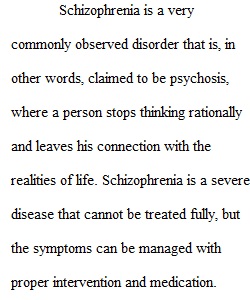


Q Literature review assignment - it is important to complete this assignment before you start work on your interviews or focus groups for the Qualitative Research Project. Step 2 for the Qualitative Research Project is to write up a short literature review of academic research on topics closely related to your topic. Review Chapter 2 in our text for guidance. For this assignment, you’ll need to find 5 academic articles that are related to your project topic. They should be from the last 6 years (2015 or later). At least one of the articles needs to be a qualitative study and at least one of the articles needs to be a quantitative study. A mixed method study can count for either. Find sources using the Highline College Library Databases (https://library.highline.edu/searchdatabasesLinks to an external site. - I recommend EBSCO Academic Search Complete). Log in with your regular Canvas login and password. Check the boxes for “Scholarly Journals” and “Full Text” to focus on those sources. Here’s a short video on using Academic Search Complete:https://www.youtube.com/watch?v=d1d-_p1JI_Y (Links to an external site.) Part 1: Annotated Bibliography (15 points): For each of the 5 articles, prepare a short annotated bibliography entry that briefly gives the following 5 elements (for guidance seeAPA-MLA Annotated Bibliography: Complete Guide to Writing the Annotated Bib Part 1 (Links to an external site.) andAPA-MLA Annotated Bibliography: Complete Guide to the Annotated Bib Part 2 (Links to an external site.) ) 1. A citation in APA style (or your favorite citation style – whatever you use, be consistent). Be sure to include the permanent link in the database or“DOI”. 2. Summary of study – topic, research method, sample size, sample description, time period, location, main variables or research content 3. Types of tables, graphs, or other visuals (just a short description) 4. Findings of study – any noted difficulties, conclusions, notes about future research 5. Evaluation – apparent credibility, relationship of this study to other studies, how closely this study parallels what you want to do, whether this study is one that you would likely want to quote in your final research report. Part 2: Literature Review Write Up (15 points): Start by watching this video clipHow to Write a Literature Review in 30 Minutes or Less (Links to an external site.) for instructions on how to work from your annotated bibliography to create a literature review. Then, based on your 5 articles, write up a short 5-6 paragraph literature review that explains the following elements. Do not just give a list. There should be explanations and examples from the articles. 1. Introduction - What the literature review write up covers 2. Similarities among the sources (content or findings or method) 3. Differences among the sources (content or findings or method) 4. Conclusions about how valuable these sources are for your project, and ideas about what other types of sources would be useful to find for your final report Note that there should be almost no quotes from the sources in your literature review for this assignment. It needs to be your synthesis of the sources that you have in your annotated bibliography. The language used does not need to be perfect. It does need to be clearly written and easy to understand. (NOTE: you will have an opportunity to get feedback and revise your assignment with a peer review activity next week) PreviousNext
View Related Questions